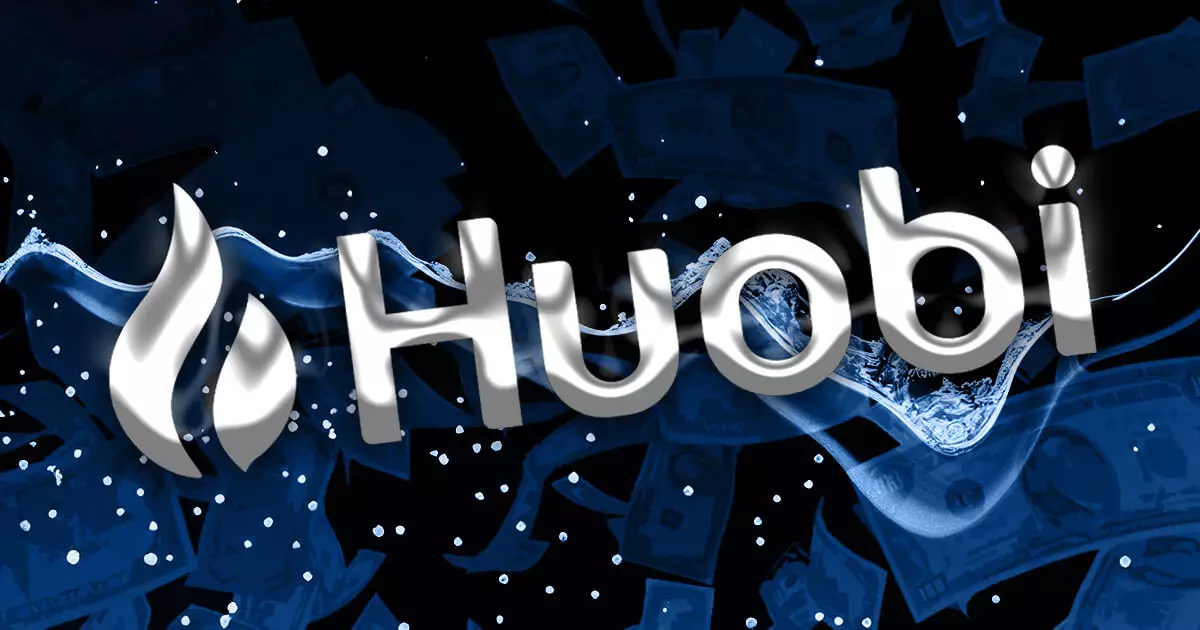Over the weekend, the crypto community was abuzz with speculations about the financial health of Huobi, one of the leading cryptocurrency exchanges. The platform has been experiencing continuous outflows from its total locked-up value (TVL), with the figure dropping from $3 billion in July to $2.4 billion. Such a significant decrease has sparked concerns among market participants.
Adding fuel to the fire were rumors suggesting that several Huobi exchange executives had been apprehended by the Chinese police. However, these claims were promptly denied by Justin Sun, a global advisor to the company, who took to social media to debunk the rumors. Despite this strong denial, the skepticism surrounding Huobi’s situation persisted as the outflow continued.
Taking a closer look at Huobi’s situation, it becomes evident that this may not be an isolated incident specific to the exchange. According to data from Glassnode, other top exchanges, including Huobi, have also witnessed a depletion of USDT reserves across various chains. This indicates that the concerns surrounding Huobi might be part of a wider market trend affecting multiple platforms.
Notably, Binance stands as an outlier in this scenario. While other exchanges have experienced a decrease in their USDT reserves, Binance has recorded an increase in its reserves. This divergence highlights the different strategies and role that Binance plays in the current market environment compared to other exchanges.
The concerns over Huobi’s financial health were further intensified by Adam Cochran, a partner at Cinneamhain Ventures, who raised alarming allegations in a post thread on X. Cochran’s allegations revolve around the distribution and control of USDT and USDC tokens within the Huobi platform.
According to Cochran, data from Tron’s blockchain suggests that 98% of the token is held directly by Sun or Huobi, indicating a lack of decentralization. Additionally, he claims that when users stake their USDT into stUSDT, it gets swept into a Huobi deposit address, raising questions about transparency. Cochran goes on to suggest that Huobi holds only $90 million of assets across USDT and USDC, significantly lower than the $630 million reported in Huobi’s ‘Merkle Tree Audit.’
Glassnode data confirms that Huobi holds $58 million in USDT presently. This stark difference in reported figures and actual holdings has fueled speculation that Justin Sun may be utilizing the shortfall to support his other decentralized finance (DeFi) applications.
Furthermore, Cochran uncovers a parallel situation concerning Ethereum (ETH), where users’ holdings have been converted into stETH without their knowledge or consent. In his report, Cochran highlights that Sun has turned all user ETH, totaling 141,000, into stETH, leaving users with false balances on Huobi.
These series of revelations have ignited controversy and speculation within the crypto community. Huobi representatives responded by categorically denying the allegations, with a community manager insisting that neither Huobi nor Tron are under investigation by the police and that all operations remain normal.
Despite the denials, Cochran stood by his initial claims, citing a senior executive from the Tron team as his source. He continued his analysis by stating that Huobi’s total balance stood at $2.5 billion, even though the actual liquid assets on the exchange were allegedly less than one-third of the reported USDT obligations. Cochran emphasized the importance of blockchain’s transparency, stating that “people lie, blockchains don’t.”
While further information is needed to confirm the allegations and verify the ownership of certain accounts, this situation highlights the fundamental importance of transparency and accountability within the cryptocurrency industry. Trust and confidence in exchanges are crucial for the healthy development and growth of the market.
In response to the mounting concerns, Huobi has continuously reassured its users and the broader community of its operational stability. Xie Jiayin, the spokesperson for Huobi, reiterated that the platform’s operations are running smoothly and urged the community to refrain from spreading or believing in rumors. The spokesperson called for a thorough investigation into the source of the information to avoid unnecessary fear, uncertainty, and doubt (FUD).
As the crypto industry matures, it becomes increasingly crucial for exchanges and platforms to prioritize transparency and accountability. The Huobi controversy serves as a reminder to all market participants that trust can only be built through open and honest communication, verified audits, and clear information about asset holdings. Only by fostering a transparent ecosystem can the industry flourish and gain the confidence of investors and users alike.


Leave a Reply